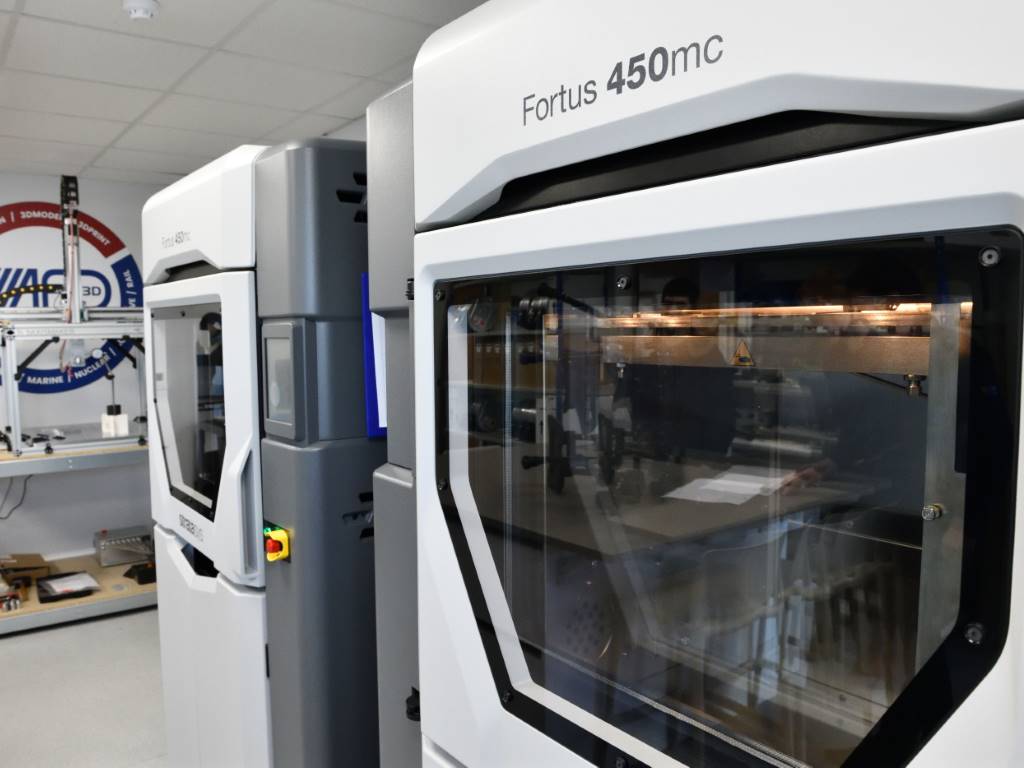Scottish tech start-up set to take off with Boeing

An Edinburgh-based tech start-up has begun its exciting ascent among world-class players in Industry 4.0 aerospace, after securing a place on the ATI Boeing Accelerator programme.
Anomalous – whose artificial intelligence (AI) based software finds defects in aircraft parts – beat off international competition from over 250 applicants to the inaugural Boeing and Aerospace Technology Institute (ATI) programme. The ATI Boeing Accelerator will allow Anomalous to establish relationships with global aerospace companies, win investment and engage with the wider sector.
Starting in January, Anomalous founders Euan Wielewski and Matt Davies will spend three months working from London’s Public Hall with Boeing’s global network of experienced entrepreneurs, mentors and investors. Euan and Matt will share cutting-edge technical knowledge with other experts, collectively helping to develop sustainability-enabling technologies within Industry 4.0.
Euan Wielewski, co-founder and CEO of Anomalous, said: “Our software helps inspection and maintenance teams find problems in any number of aircraft parts, from fan blades to other key engine components. The use of AI can make inspection faster and more accurate - an advantage that can save money, and even lives.
“Being selected for the ATI Boeing Accelerator is a huge opportunity for Anomalous and great validation of all the hard work we have put in over the last year. Working with the world’s biggest aerospace company through the accelerator programme will give us a fantastic platform to further develop our product and scale our business.”
Anomalous will also receive an £100,000 equity investment from Boeing HorizonX Ventures along with first-hand access to ATI, Boeing and GKN Aerospace strategists and technical experts. The programme – designed and delivered by European accelerator Ignite – will help Anomalous to grow as a business. Anomalous will also have access to paid proof of concepts (POCs) with Boeing and GKN Aerospace.
Matt Davies, co-founder and CPO of Anomalous, said: “This is a great opportunity for us to build relationships in the industry and deepen our understanding of our aerospace client’s needs. We are excited to continue to meet with teams on the front lines of maintenance and repair to understand their challenges and build a product that can truly enhance their capabilities and productivity. Their feedback, and our exposure to their process and supply chain, will be invaluable.
“Boeing and GKN are globally recognised aerospace pioneers; it is a privilege to be part of this inaugural programme. We are excited to get stuck in and demonstrate the capability of our technology.”
In April, Anomalous will celebrate the end of the programme with a demo day, where they will pitch their business to customers, key industry stakeholders and investors to achieve commercial and equity outcomes.
Brian Schettler, senior managing director at Boeing HorizonX Ventures, said: “Boeing is thrilled to be involved in this programme, as we believe the 10 selected start-ups are bringing new ideas and technologies into our industry. We’re excited to see how the accelerator builds on their existing capabilities and enhances their ability to impact aerospace with their innovation.”
Gary Elliott, CEO at the Aerospace Technology Institute, added: “We created this programme because we are looking for great technology from start-ups who have a different approach to innovation and will introduce a new way of thinking into aerospace and aviation. We are excited about working with new entrepreneurs with a great level of energy and different ways of approaching innovation.”
Paul Perera, vice-president Technology at GKN Aerospace, said: “We are really excited about what the start-up community - especially around sustainability and industry 4.0 - can bring into aerospace. I believe there’s a lot of innovation in this ecosystem and it will be incredibly rewarding to work with Boeing and ATI to help generate the future leaders of the aerospace industry.”












